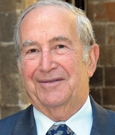Citing a World Health Organization report that lists Israel as having one of the highest rates of breast cancer in the world, The New York Times reported on a proposed screening program to identify women with BRCA1 and BRCA2 mutations.1 “A number of influential geneticists and cancer doctors from various medical centers here say that the Israeli Health Ministry should pay for free voluntary genetic testing of all Ashkenazi women over the age of 25,” the Times article stated.
Ashkenazi Jews, those with a Central or Eastern European background, “have a higher prevalence of harmful BRCA1 and BRCA2 mutations than people in the general population,” according to the U.S. National Cancer Institute (NCI), but routine testing for BRCA mutations is not recommended in this country. An NCI fact sheet on BRCA1 and BRCA2 testing noted that “most experts agree that mutation testing of individuals who do not have cancer should be performed only when the person’s family history suggests the possible presence of a harmful mutation in BRCA1 or BRCA2.”2
In a recent clinical guideline update, the U.S. Preventive Services Task Force also recommended against routine BRCA testing for women whose family history is not associated with an increased risk for potentially harmful mutations in the BRCA1 or BRCA2 genes.3
Ethical and Logistic Implications
To learn more about the status of the proposed BRCA screening program in Israel and the widespread concern about BRCA mutations there, The ASCO Post spoke with Eliezer Robinson, MD, Professor of Oncology, Chairman of the National Council for Oncology, and Chairman of the Israeli Cancer Association, Haifa, Israel. Dr. Robinson is also a member of The ASCO Post editorial board.
Among those quoted in the Times article as supporting BRCA testing was Ephrat Levy-Lahad, MD, Director of the Medical Genetics Institute at Shaare Zedek Medical Center in Jerusalem, who is recognized as starting one of the first genetic testing programs in Israel. Dr. Robinson explained that Dr. Levy-Lahad, who coordinates the Israel Genetics Consortium, “believes that we must explore the possibility of conducting screening for BRCA mutations in Ashkenazi women in Israel. However, she herself is still examining the feasibility of conducting such screening, as well as its ethical and logistic implications…. This is why an official proposal [on BRCA screening] has not yet been submitted to the Ministry of Health,” Dr. Robinson stated.
Subject of Family Debates
The Times article noted that “family debates were playing out across Israel these days” on whether women should be tested for BRCA mutations and, if found positive, whether they should have prophylactic double mastectomies and perhaps oophorectomies as well.
In one example cited, a 47-year-old woman who tested positive for a BRCA mutation and had a double mastectomy expressed extreme relief that her older daughter tested negative. She now wants her younger daughter to be tested, and if she tests positive, the mother would like her to start a family early and then have a double mastectomy. This caused the older daughter to counter, “She doesn’t even have a boyfriend. You need to stop pressuring her.”
In Dr. Robinson’s experience, “family discussions [on prophylactic mastectomy] are held mainly among families with a member who has been diagnosed with the disease, particularly when it comes to young patients. It is well known that in families where a genetic mutation has been diagnosed among some family members, not all members choose to undergo the screening test. However, no survey was conducted among Ashkenazi women to examine one preference or another.”
Reluctance to Do Double Mastectomies?
“Many Israeli women who have the harmful mutations complain that male doctors display sexist attitudes about the importance of breasts and are loath to do mastectomies on healthy women,” the Times reported. According to the article, a 35-year-old woman who tested positive for a BRCA1 mutation and whose mother had died from ovarian cancer was trying to find a doctor to remove her breasts and ovaries. She was told by one doctor that she was insane and by another to “Come back when you have cancer. Nobody dies of breast cancer nowadays.”
Dr. Robinson commented that some physicians in Israel believe that preventive surgeries are appropriate, and others, including those who were quoted in the Times article, are of the opinion that “there is no need to rush in to preventive mastectomies, since BRCA carriers in Israel are entitled to an MRI scan, and when a woman is checked regularly, lesions may be detected at an early stage.”
He continued, “There is no doubt that regarding the removal of ovaries—given that it is difficult to detect ovarian cancer at an early stage—a much more sweeping consensus has been reached.” ■
Disclosure: Dr. Robinson reported no potential conflicts of interest.
References
1. Rabin RC: In Israel, a push to screen for cancer gene leaves many conflicted. New York Times, November 26, 2013.
2. National Cancer Institute Fact Sheet. BRCA1 and BRCA2: Cancer risk and genetic testing, reviewed August 5, 2013. Available at www.cancer.gov/cancertopics/factsheet/Risk/BRCA. Accessed January 23, 2014.
3. Moyer VA, on behalf of the US Preventive Services Task Force. Risk assessment, genetic counseling, and genetic testing for BRCA-related cancer in women: U.S. Preventive Services Task Force recommendation statement. Clinical Guideline. Ann Intern Med, December 24, 2013 (early release online).


